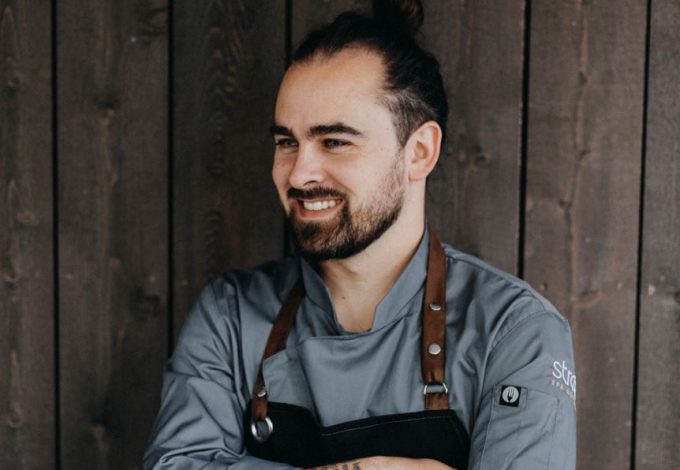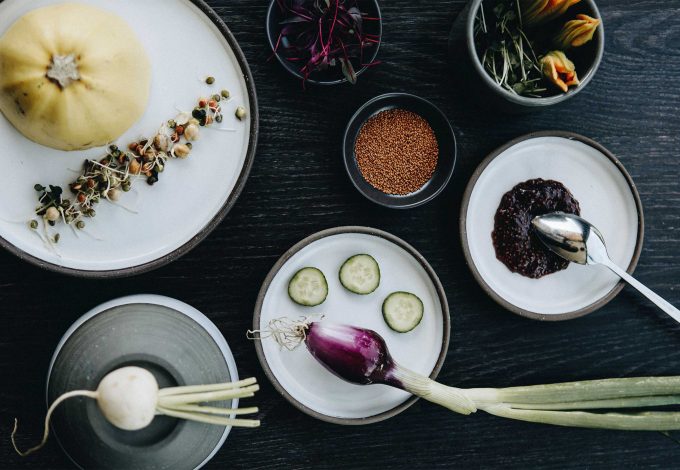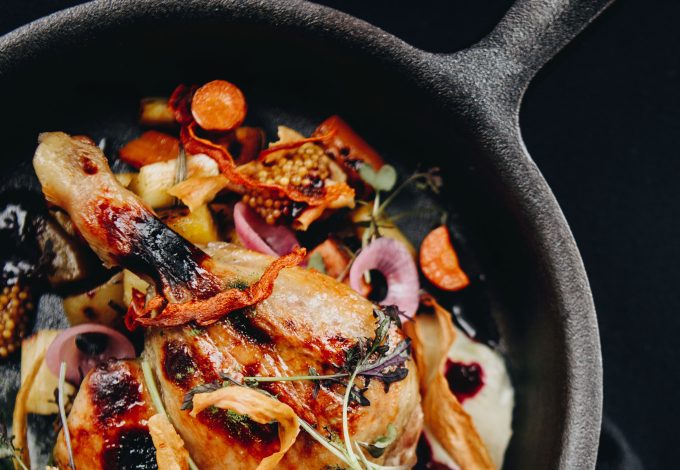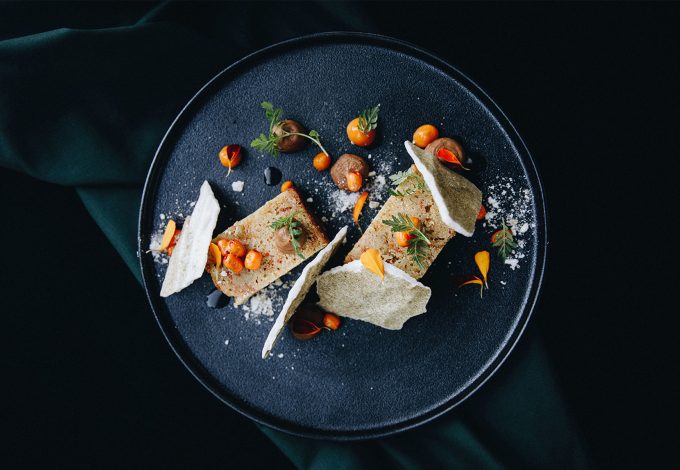OUR LAND — Cooking sweets with Quebec berries, making salads with tomatoes from the fields and herbs from the garden, preparing comforting stews with root vegetables once autumn arrives… Putting homegrown products on the table not only allows us to feast, but it also gives us the feeling of doing something good for ourselves, for others, and for our land. While feeding ourselves almost exclusively with local products is fairly easy at the end of summer and the start of autumn, many dream of being able to do so 365 days a year. To do this, however, Quebec would need to produce a wide variety of foods year-round in sufficient quantity to be able to meet the needs of all its inhabitants. This is what is known as food self-sufficiency.
AN ANCESTRAL DREAM
The ideal of food self-sufficiency is nothing new in Quebec. In the 1980s, Jean Garon, Minister of Agriculture, Fisheries, and Food, made this goal his main cause, allowing the province, through various laws, to become 80% self-sufficient. Forty years later, the province’s self-sufficiency instead hovers around 50%, according to Jean-Claude Dufour, an expert in food distribution management and former dean of the Faculty of Agriculture and Food Sciences at Université Laval. However, the issue is more topical than ever. While the provincial government recently came out in favour of greater food self-sufficiency, hundreds of artisans have been getting up every morning for a long time to make this desire a possibility. As is the case with many social projects, however, this one is complex, and its success depends on many factors. Here is a portrait of the situation.
DEFINITIONS
Food self-sufficiency is defined as a nation’s ability to provide its population with enough quality food to meet its needs. It therefore does not depend on importing products, and fresh food is accessible to it year-round. When this accessibility also allows the needs of vulnerable populations to be met, thereby reducing reliance on food banks, we are also talking about food security. Other terms and the semantic variation that they give to the concept are also used in some contexts. For example, some will speak of food autonomy, which is less autarkic than speaking of self-sufficiency. The concept of “food sovereignty,” meanwhile, has more to do with the political dimension of a society and its diet and is presented in particular as a national law with an impact on import/export agreements. In all cases, whether a society is able to feed itself primarily or completely from the land on which it lives, this allows for great and beautiful things that no longer need to be proven, such as support for the local economy, the protection of the environment, and the well-being of the citizens, thanks to the quality of the food that they consume, among other things.
THE CONTEXT IN QUEBEC
The province is already considered autonomous for many foods, such as dairy products, eggs, poultry, pork, and beer. However, other foods, including certain fruits and vegetables, are either not produced at all on Quebec soil, such as oranges or bananas, or not produced year-round, such as strawberries or blueberries, which need to be imported during the winter. The climate therefore appears to be the first major obstacle to food self-sufficiency. But beyond that, there are many challenges scattered throughout the food supply chain that need to be considered.
AT THE BASE OF THE CIRCUIT
Imports
Offering the consumer a wide variety of similar products from several different places dilutes the chances that the product from Quebec will be the one purchased. It would therefore be ideal to stop or at least reduce the importation of products for which there are already local equivalents, such as cheeses.
Farms
Larger farms that produce larger quantities can sell their products for less at the grocery store thanks to economies of scale that help make the prices of their products competitive. On the other hand, returning to smaller but more numerous farms (to avoid losing production quantity) would help make sustainable agriculture more accessible while guaranteeing growers quality of life within human-scale companies. Furthermore, there are over 900 greenhouses in Quebec, including 500 that are used to grow flowers or plants. The nature of certain greenhouses could be revised to make more room for farming fruits and vegetables intended for consumption.
The cost of electricity
It goes without saying that the temperatures in Quebec for half the year are less conducive to market gardening, but solutions exist. Based on electricity greenhouse heating often being the key to success these solutions unfortunately quickly become prohibitively expensive for growers, which limits production capacities. Jean-Martin Fortier, a farmer, teacher, and author, argues that if growers could take advantage of favourable agreements with Hydro-Québec, they could heat their greenhouses earlier in the spring and later in the autumn to produce more and better. Back in July, Hydro-Québec also announced that they had filed an application with the Régie de l’énergie to be able to offer growers a new rate package and thereby encourage the development of greenhouses.
Labour
The closure of the international borders in recent months has highlighted the fact that a large portion of the labour force that works the fields in the summer comes from abroad. Although this phenomenon gives us a serious helping hand, it also reinforces our dependence on other countries and caps the yield. But the reason we go looking for seasonal workers elsewhere is because it’s hard to find them here. We would benefit greatly from determining effective ways to encourage Quebecers to work on our farms and in our fields, and why not by using innovative and attractive long-term proposals? Robotizing the processes, training local labour, and—above all—promoting the farming trade are also other ways to meet tomorrow’s challenges.
AT THE GROCERY STORE
Prices
Sometimes, the problem isn’t the supply, but the demand… The trend currently observed is that, for the same product, the consumer will usually choose the cheapest option, regardless of the source. The imported product therefore often wins. But we forget that a consumer who chooses a local product is also buying the local standards. Unfortunately, foods from elsewhere are not always subjected to the same specifications as those produced in Quebec. By imposing the principle of reciprocity and forcing foreign producers to meet the same standards as local producers, this would not only help ensure higher quality for consumers, but also price equity.
Labelling
In recent months, both producers and grocers have redoubled their efforts to identify products from Quebec more clearly. Despite this, especially at the point of sale, the indications are still sometimes hard to decipher. Legislation on in-store labelling concerning food origins could alleviate the problem by making it easier to identify local non-perishable foods and fresh produce. If the consumer doesn’t have to ask questions or go looking for products, they will be even more tempted to buy local.
AT HOME
A vegetable garden in your yard
This is an aspect that is sometimes overlooked, but agriculture for personal consumption purposes is also part of the principle of food self-sufficiency. By growing our own fruits and vegetables during the summer, we learn a lot about how nature works and the job of those who feed us, and this pushes us to review our consumption habits, the choices we make, and the places we shop. And how satisfying it is to put food that you grew yourself on your plate! Moreover, in Montreal, 35 to 50% of residents would practise urban agriculture. This would make it possible to meet the fresh vegetable needs of 5% of the population in the summer.1
TAMING OUR NORDICITY
While the Quebec winter seems to work against us, many will agree that it is enough to accept it and work with it instead of against it to turn it into an advantage. By recognizing the challenges that it imposes, respecting the seasonality of our production, and adapting our diets to the rhythm of the seasons and the riches of our land, food self-sufficiency encourages us to make the most of our resources and capacities. If all the players in the food supply chain band together around the same goal and work together, the cuisine of tomorrow will be more Québécois than ever.
IN THE FIELD
To learn more about local artisans, here are four companies with which Strøm works and which are helping make Quebec an autonomous province in terms of food.
QV — ALCOHOL
QV is a wine, beer, and spirits agency founded in 2007 by Cyril Kérébel. The company is proud to represent several Quebec estates, including some for over 10 years now. The agency distributes ciders (Domaine Choinière), meads (Domaine Desrochers), wines (Domaine des Pervenches, Raku, Salamandres, and Beauchemin), spirits (Distillerie Fils du Roy and Distillerie de
Québec), and perries (Domaine des Salamandres). The team introduces you to local products and producers through tastings and is pleased to see that Quebec is in style. Kérébel confides that, at one time, he had quite a bit of trouble promoting products from Quebec because people didn’t even want to taste them… Today, things have changed dramatically! The quality of Quebec’s offerings continues to increase, and connoisseurs are more open to them than ever. While it is sometimes difficult to meet the growing demand, QV is increasing its resources to continue supporting its ambassadors, those who have trusted them from the start. By serving as an intermediary between local producers and customers and always putting pleasure first, QV is contributing to the growth of Quebec-based microbreweries, distilleries, and vineyards.
Local artisans are helping make Quebec an autonomous province in therms of food.
LE JARDIN DES FUNAMBULES — VEGETABLES
Le Jardin des Funambules is a small organic vegetable farm located in Estrie. It is the project of two couples (Mélisande, Vincent L., Corinne, and Vincent M.) who live and work on the farm and make every effort to offer fresh vegetables to their community and create a stimulating living environment. As the company name suggests, balance is central to their vision for the farm. This concept can be found everywhere: in their very lives, in the overall health of their subscribers, and in the ecological balance required for their production. They grow a little more than half a hectare according to the precepts of the biointensive and mostly unmechanized model. A third of the surface area is in greenhouses. These greenhouses make it possible to produce in a controlled climate by reducing the risks related to climate hazards and—above all—they are the tool of choice for growing fresh vegetables year-round. In the winter in Quebec, few vegetables can be harvested fresh in the fields. For consumers who are increasingly motivated to buy local, it can be discouraging to only find canned or frozen vegetables in the depths of winter (from December to March). For the Funambules, growing in the greenhouse in the winter means being able to garnish their customers’ plates with fresh greens such as spinach, arugula, kale, mixed lettuce…the list is long and attractive. Although it’s possible to grow tomatoes and cucumbers at all times, the farmers want to stay true to their ecological values and use minimal energy to produce maximum flavour. Spinach and carrots that freeze several times during the winter are tasty vegetables, full of flavour that a summer carrot can never offer. This is the challenge for the Jardin des Funambules team for the years to come: to promote the riches of winter crops and help Quebec consumers take one more step toward food autonomy.
GASPÉSIE SAUVAGE — THE BOREAL PANTRY
Originally from the Ardennes, a forested region of Belgium, Gérard Mathar, Catherine Jacob, and their three boys settled in Gaspésie in 2005, lured by the wide-open spaces and the natural surroundings. Living on a vast estate in the middle of the boreal forest, it wasn’t long before they started gathering wild food and producing their food themselves, with the dual aim of meeting their needs and passing this learning on to their children. What was then just a way of life quietly became an occupation. Today, they raise animals, make their own cheeses, grow vegetables, and harvest mushrooms, flowers, herbs, seaweed, roots, spices, lichen, fruits, and plants in the forest or by the sea. Most of these wild ingredients are intended for food, but some are also chosen for their medicinal properties. Products from the forest that are sold fresh are delivered within 24 hours of harvesting, while the others are dried or processed on site. Their buyers include individuals, of course (Gaspésie Sauvage has several points of sale across the province), but they also supply chefs, restaurant owners, microbreweries, distilleries, and meat producers. For the Mathar-Jacobs, it’s not about living “on” the land, but “with” the land, in harmony with its cycles and what it has to offer. This is why their work “isn’t an end in itself,” although they are passionate about it. Their small business will stay small, and their ways of working will always be in harmony with the way they want to live that is, in harmony with nature, which cannot be controlled. Nearly self-sufficient itself, the Mathar-Jacob family helps make Quebec a nation capable of feeding itself thanks to the quality, simplicity, and above all essential nature of the products that they harvest, grow, process, and market.
It’s not about living “on” the land, but “with” the land.
LAITERIE CHARLEVOIX — CHEESES AND MORE…
A family business founded in 1948, Laiterie Charlevoix is now managed by the third generation of the Labbé family. Initially dedicated to selling dairy products in Charlevoix and Côte-Nord, over the years, the organization has shifted its activities toward cheese production. Then, in 2014, with the acquisition of Aux Terroirs, it moved toward the distribution of local products of all sorts (cold cuts, cheeses, etc.), thereby positioning itself as a showcase for the artisans of the region and the province. Indeed, Laiterie Charlevoix chooses to offer its customers a range of diverse products from several artisans to meet everyone’s needs. The goal of this philosophy is to promote Quebec knowhow as a whole and encourage local purchasing. Philippe Labbé believes that, by working together in synergy and making local products accessible, food self-sufficiency will become possible. That’s why, in addition to advocating for human-scale agriculture, Laiterie Charlevoix is developing close agreements with dairy producers, particularly involving the exclusive use of the Canadian cow, a Quebec heritage breed. This way of doing things allows for a uniqueness and particularity of the resulting product, and an autonomy of production. In a sustainable development dynamic, by transforming the residual whey from the cheese production into energy to heat the buildings and ponds, among other things, Laiterie Charlevoix also aims to reduce its ecological footprint. Truly open to local talents, the company has become over time and will continue to be a major player in food self-sufficiency in Quebec.
THE STRØM PHILOSOPHY
At the Nord Restaurants and the Fika Café at Strøm Nordic Spas, artisans from our regions and their products are at the heart of creating all our menus. From fruits and vegetables from local growers to cold cuts and cheeses from the region, as well as spices and other ingredients from our boreal forest and even plates from local ceramists, there is a deep desire to put the richness of our land and ancestral know-how on the table. Through the culinary discoveries offered, which change with the seasons, we are in a sense proud spokespeople for our producers and artisans! For us, cooking root vegetables in all their forms when the cold arrives and taking advantage of the abundance of the fields and forests once summer is at its peak is a return to our roots. It allows us to pay tribute to our land. Favouring local producers who rely on healthy and eco-friendly practices is a way to give back to nature and participate in the growth of the local economy. We are delighted to be able to rely on the gems of the St. Lawrence River and the harvests of local growers to garnish our plates. We are happy to tell the story of the Quebec-based wine growers, brewers, and distillers who fill our glasses. In short, we are proud to offer our customers an experience in harmony with our values that promotes Quebec know-how.
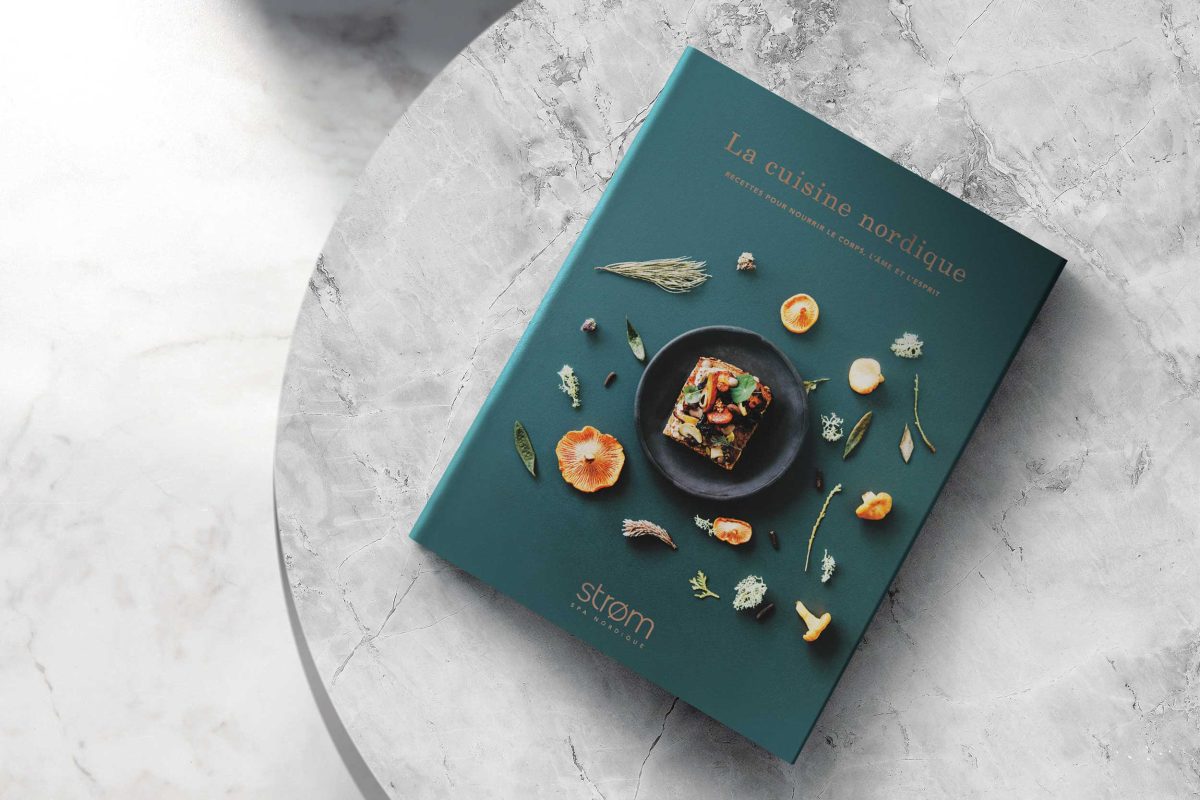
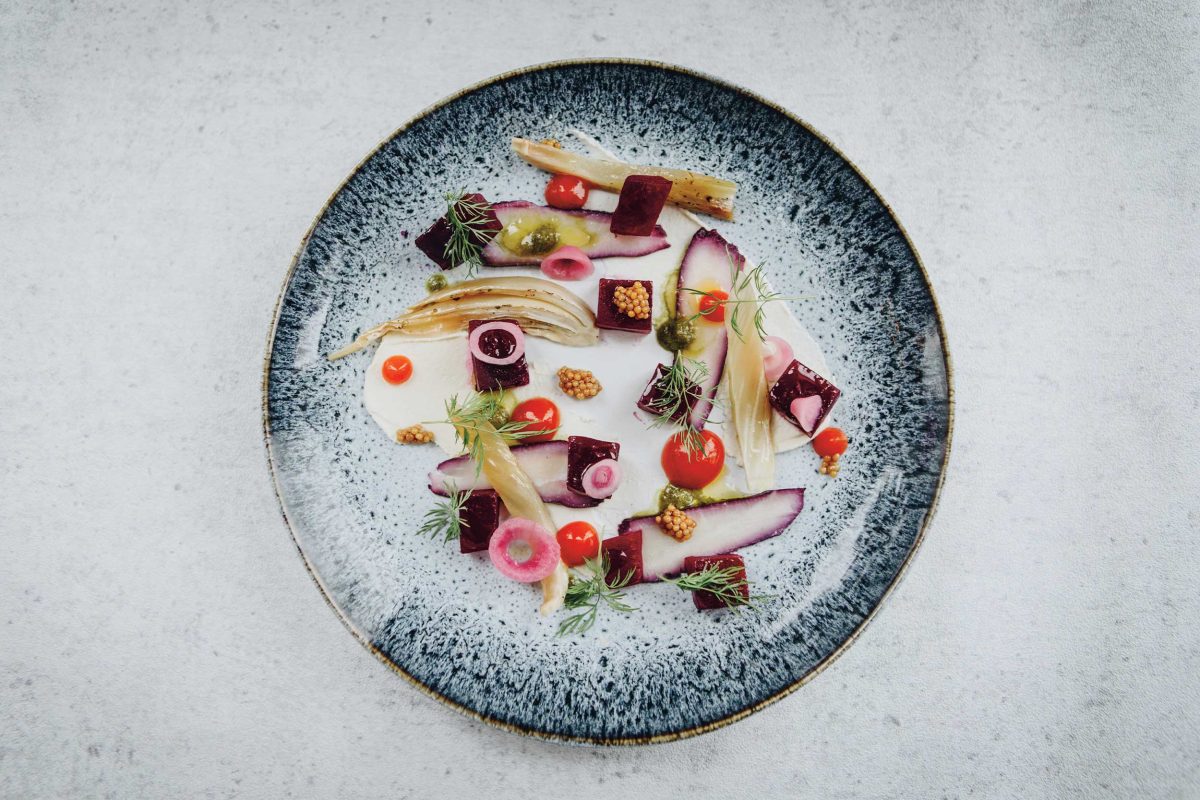
LA CUISINE NORDIQUE
Evolving to the rhythm of the four seasons, the Nordic cuisine is wild and comforting. Just like our wide open spaces, the vast and rich boreal terroir is just waiting to be explored. It extends from the land to the sea and travels through fields, forests and mountains. Thanks to a collection of recipes that will make you travel, this book is a journey to the heart of the local flavours. Raphaël Podlasiewicz, Executive Chef of Nord restaurants and of Fika café at Strøm Nordic Spa, marries flavours and cooks local ingredients in a creative and comforting Scandinavian-inspired cuisine. Discover his universe one season at a time in La cuisine nordique, available at all Strøm Nordic Spa and online starting December 2020 for $34.





